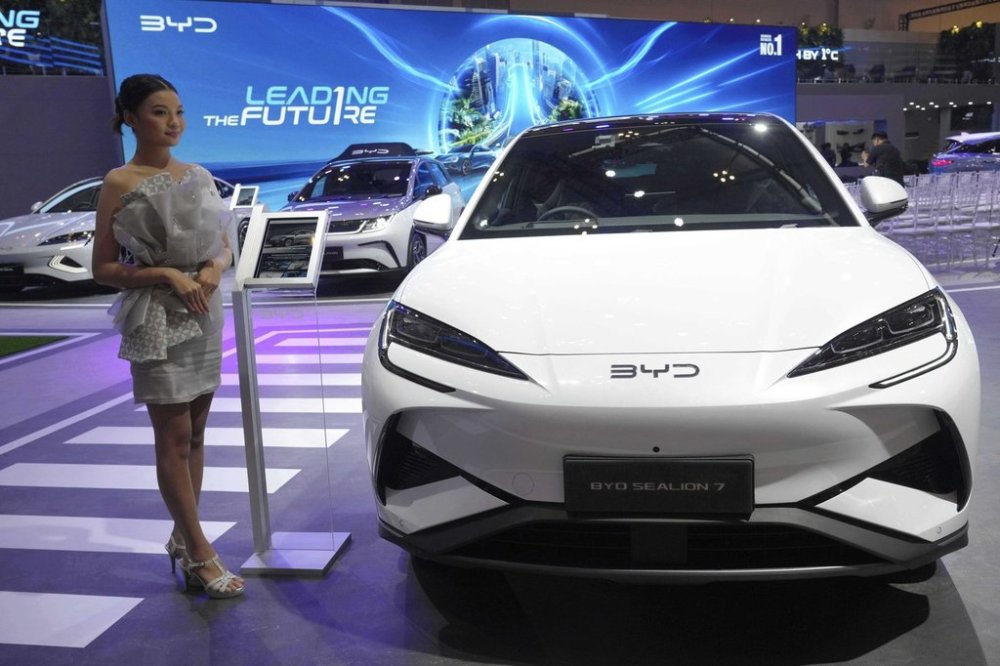China tightens rules for electric vehicle exports by requiring permits from 2026
Advertisement
Read this article for free:
or
Already have an account? Log in here »
To continue reading, please subscribe:
Monthly Digital Subscription
$1 per week for 24 weeks*
- Enjoy unlimited reading on winnipegfreepress.com
- Read the E-Edition, our digital replica newspaper
- Access News Break, our award-winning app
- Play interactive puzzles
*Billed as $4.00 plus GST every four weeks. After 24 weeks, price increases to the regular rate of $19.00 plus GST every four weeks. Offer available to new and qualified returning subscribers only. Cancel any time.
Monthly Digital Subscription
$4.75/week*
- Enjoy unlimited reading on winnipegfreepress.com
- Read the E-Edition, our digital replica newspaper
- Access News Break, our award-winning app
- Play interactive puzzles
*Billed as $19 plus GST every four weeks. Cancel any time.
To continue reading, please subscribe:
Add Winnipeg Free Press access to your Brandon Sun subscription for only
$1 for the first 4 weeks*
*$1 will be added to your next bill. After your 4 weeks access is complete your rate will increase by $0.00 a X percent off the regular rate.
Read unlimited articles for free today:
or
Already have an account? Log in here »
TAIPEI, Taiwan (AP) — China will tighten the rules for exporting electric vehicles by requiring automakers to obtain export permits from next year, the Commerce Ministry said Friday.
The export licenses, required from Jan. 1, are intended to “promote the healthy development of the new energy vehicle trade,” the ministry said in a statement.
The controls come as Beijing is trying to rein in the electric vehicle sector in the world’s largest auto market.

China is also the largest car exporter, selling about 5.5 million vehicles abroad last year, of which nearly 40% were EVs.
The United States and European Union members are among countries to have imposed tariffs on made-in-China electric vehicles, saying that government subsidies have given them an unfair advantage.
In recent months, Beijing has been trying to address concerns about oversupply and a debilitating price war between its EV makers. Critics say the EV market is plagued by “involution,” a term to describe companies and industries engaged in meaningless competition that leads nowhere.
In particular, market leader BYD came under criticism earlier this year when it launched a new round of price cuts, and several competitors followed suit. Wei Jianjun, the chairman of Great Wall Motors, warned the industry could come under threat if it continues on the same trajectory.
Nevertheless, China’s domestic EV sector saw record sales in the first half of 2025, with EVs making up more than 50% of total passenger vehicle sales.

